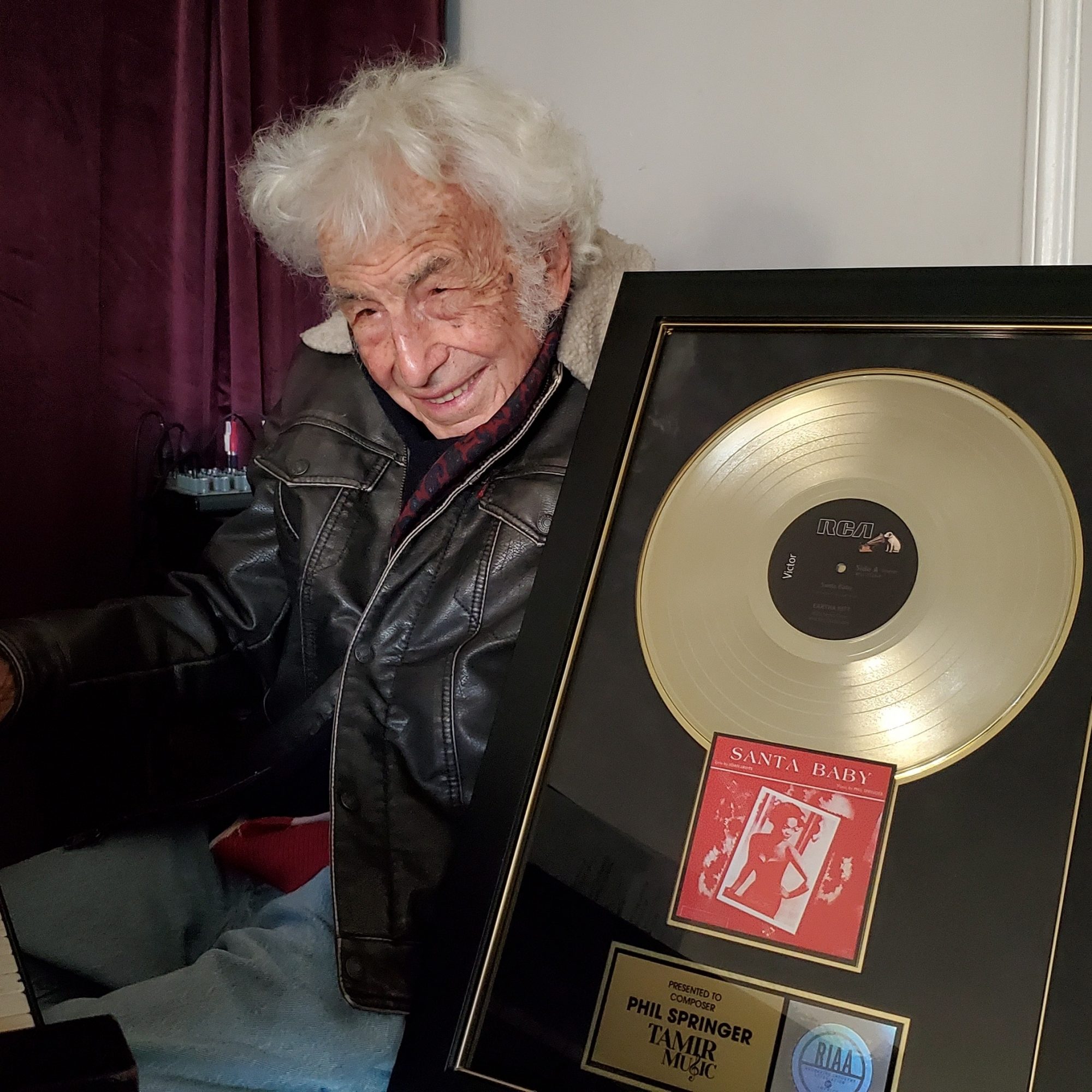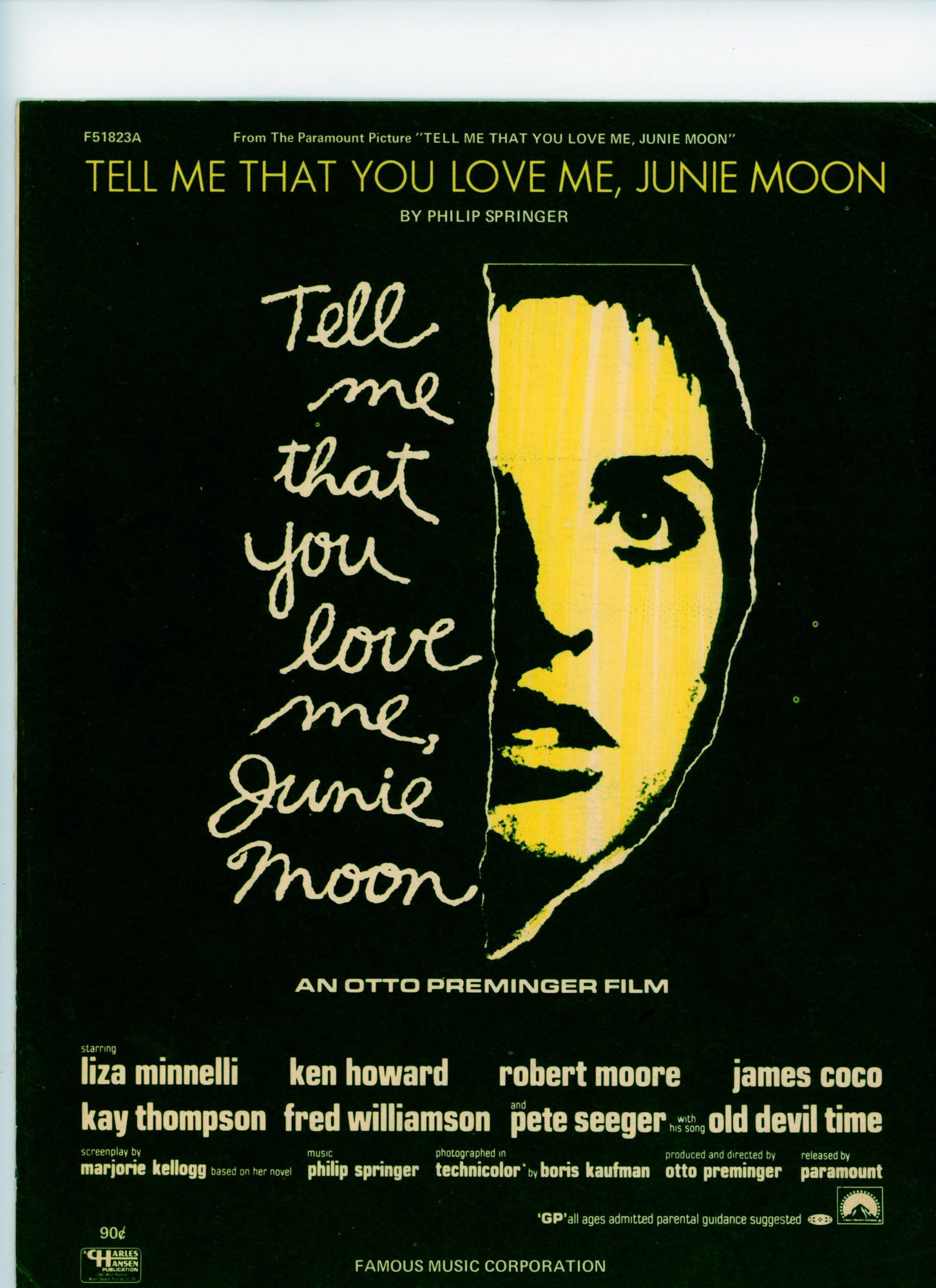
Today we’d like to introduce you to Philip Springer. They and their team shared their story with us below:
Composer Philip Springer is best known for writing the classic Christmas standard, “Santa Baby”, with lyricist Joan Javits. Springer is the longest-living composer from the Brill Building era of the 1940s, 50s and 60s. Today, he lives in Pacific Palisades 97 years young.
Springer started playing Bach on the piano by ear at age six. After studying piano, and with music dominating his life in high school, the army, and at Columbia College, he began his professional career as a staff composer at the iconic Brill Building in New York City at age 23.
Springer’s first top ten song was “Teasin’” recorded by Connie Haines and in England, by the Beverly Sisters. Some of Springer’s songs include “How Little It Matters, How Little We Know” by Frank Sinatra, “Heartbroken” by Judy Garland, The Next Time by Cliff Richard (no. 1 in England and other European Countries), “Moonlight Gambler” by Frankie Laine, “All Cried Out” by Dusty Springfield, “Never Ending” by Elvis Presley, “Her Little Heart Went to Loveland” by Aretha Franklin and many more. Springer composed and conducted motion picture scores in Hollywood, including “Tell Me that you Love Me, Junie Moon,” starring Liza Minelli and “More Dead than Alive,” starring Vincent Price, and “Impasse” starring Burt Reynolds. He also scored episodes of the television shows Gunsmoke, Mannix, Along Came Bronson, Medical Center, and the theme for “Crosswits”, a 1970s game show. Springer was an early pioneer in electronic music.
Philip Springer was E.Y. “Yip” Harburg’s (Over the Rainbow, Paper Moon) last collaborator before Harburg’s death. Springer’s collaboration with Harburg (called the greatest lyricist of the 20th Century by Oscar Hammerstein II) produced 15 songs, one of which, “Time You Old Gypsy Man” was referred to by Harburg as “the best song he has ever written” (New York Times, 1/25/1980).
His recent performance of Beethoven’s Moonlight Sonata went viral worldwide across all major social media platforms, was nominated for a 2023 Webby Award, and won the World Classical Music Award for piano performance (2023).
The 70+ year musical journey of composer Philip Springer will be told in the upcoming documentary film, “More Than Santa Baby,” which Springer’s daughter Tamar is producing.
We all face challenges, but looking back would you describe it as a relatively smooth road?
While Springer enjoyed a promising start as a composer at The Brill Building, the road was not always easy. Springer worked with many legendary lyricists of the 20th century, many of whom went on to the pinnacle achievement of that time, a Broadway show. Despite heartfelt effort and a few opportunities, Springer did not reach that height. Also, in the mid-1960s, the songwriting model which launched his career changed. The rock revolution and the singer-songwriter emerged. The Brill Building no longer operated as they had in its glory days, with composers, lyricists, and publishers working in 9 to 5 fashion. “Tin Pan Alley” as Springer knew it, was gone. Springer moved to California in 1967 and began to compose for movies and television. While he enjoyed many successes, he also endured hardships and disappointments over the course of his 70+ years as a composer. The worldwide popularity of “Santa Baby” has grown over time, and its place as a beloved Christmas standard is a lifelong gift that balances the ups and downs of Springer’s career.
Appreciate you sharing that. What else should we know about what you do?
As a composer, the song that endures and brings much special attention is my classic standard, “Santa Baby,” co-written with lyricist Joan Javits in 1953. We were commissioned to write a Christmas song for Eartha Kitt, then the sultriest emerging star in America. Frank Sinatra recorded one of his personal favorites, “How Little It Matters, How Little We Know,” co-written with lyricist Carolyn Leigh. I wrote many other popular songs, including Frankie Laine’s hit parade recording, “Moonlight Gambler” (lyrics Bob Hilliard). The United Kingdom was a special place for me in the 1960s, with a #1 hit song by Sir Cliff Richard, “The Next Time” and other popular songs, including “Time” by Craig Douglas “All Cried Out” by Dusty Springfield, songs recorded by Kiki Dee and other UK artists. People may not know that I have compositions in many idioms of music, including classical, electronic, film, and television scores and theater.
We’d love to hear about how you think about risk taking?
Pursuing a career as an artist is inherently risky. Especially for a person with a family to support. The waves of an artist’s success and ability to bring in income can vary greatly. A musician must go where the jobs are, making stability for a family a potential challenge. For me, I could do nothing other than create music in my lifetime. In general, setting and achieving challenging goals involves risk-taking on many levels. It is much better to try to live out one’s purpose and tackle the risks than regret not having made every effort to reach for the stars.
Contact Info:
- Website: www.composerofsantababy.com
- Instagram: https://www.instagram.com/santababycomposer/
- Facebook: https://www.facebook.com/santababycomposer
- Linkedin: https://www.linkedin.com/in/tamar-springer-125b6a2b/
- Youtube: https://www.youtube.com/channel/UCK3j4e1bD9VKQueG6m7lYGA







 Image Credits
Image Credits
Tamir Music Archives














